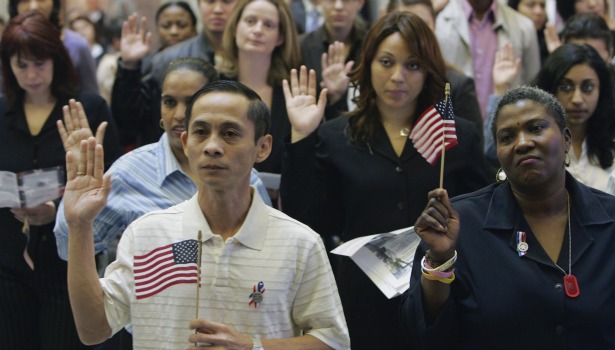 Editor’s note: Annabel is one of the producers of Story of America. This is an auto-biographical story about how she became committed to being an active citizen.
Editor’s note: Annabel is one of the producers of Story of America. This is an auto-biographical story about how she became committed to being an active citizen.
This is the oath that I took when I became an American citizen in June, 1991, in Boston:
I hereby declare, on oath, that I absolutely and entirely renounce and abjure all allegiance and fidelity to any foreign prince, potentate, state, or sovereignty of whom or which I have heretofore been a subject or citizen; that I will support and defend the Constitution and laws of the United
States of America against all enemies, foreign and domestic; that I will bear true faith and allegiance to the same; that I will bear arms on behalf of the United States when required by the law; that I will perform noncombatant service in the Armed Forces of the United States when required by the law; that I will perform work of national importance under civilian direction when required by the law; and that I take this obligation freely without any mental reservation or purpose of evasion; so help me God.
It is recorded that some version of an oath of allegiance was first used on May 30, 1778 at Valley Forge during the Revolutionary War.
Despite the antiquated language, it meant something to me when I took this oath. Perhaps it was because I was a young person full of ideals about living a life of service to others. Or, it’s because I’d never taken an oath before or since. Perhaps it was because I was standing with a group of people who also appeared to be profoundly moved by the experience of becoming an American citizen.
In the auditorium that day were people from all continents. It really looked like the global village. It was ethnically diverse, but uniform in spirit, a sea of lit-up faces emanating hope and happiness. Many came with their families and took photos. I was alone, not appreciating at the time the meaning of this moment. Not until I was standing up and taking the oath did I understand that this moment embodied the dream conceived by my parents two decades before in South Korea, a country ruled by a military dictatorship at the time and (still) technically in a civil war with North Korea.
After that transformative moment on Beacon Hill, even while I studied political theory for several years as a graduate student at Oxford, the power of those words began to fade. I thought a lot about politics, but there was little emotional content. It was mostly academic and I felt quite detached. Frankly, the conundrums in my personal life trumped serious engagement with political ideas.
After leaving grad school, I focused on two big goals: searching for a satisfying career and, with equal energy, searching for love. These twin goals occupied a lot of space in my head and heart. I fell into the kind of self-absorption that was the new normal in the 90’s. I remember thinking that my angst was truly unique to me; but I realize now that scenes from my life played out like less glamorous episodes of Sex and the City.
Then the civic alarm bells went off in my head with the “butterfly ballots” and “hanging chads” in the 2000 presidential election. Election official in Florida during the 2000 election examining the “hanging chads” on ballots.
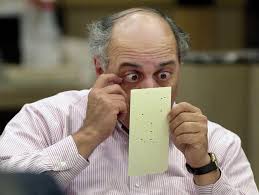
Our democracy seemed to hang in the balance while we learned the exotic details of electoral administration in Florida. Upon seeing those badly designed ballots, our democracy seemed so fragile and flawed. It was enough to make you weep. That’s it?! We’re going to decide who will be the most powerful leader of the world based on those dubious-looking pieces of paper? It just can’t be. It was worse than that. The decision was rendered in an even more dubious Supreme Court ruling to stop counting ballots and anoint George W. Bush our president.
I often wonder, if I’d known then everything that I know now about the consequences of the flawed Supreme Court decision that determined the outcome of that election, what would I have done? I think I would have poured my heart into getting people out on the street. Imagine if we had all done that; but, we didn’t. We were asked by Al Gore to be compliant for the sake of our country. And we did. We stayed quiet. Eerily quiet. Why?
It was as if we made a Faustian pact with the devil. We achieved a peaceful transition of power, but we sold our soul. I think I still have post-traumatic stress from this experience and I identify it as the moment when the wheels came off of American democracy. This is when we saw that behind the curtain of lofty rhetoric and ideals, we saw the wizards in black robes making an overtly partisan decision. The democracy mask came off of our process.
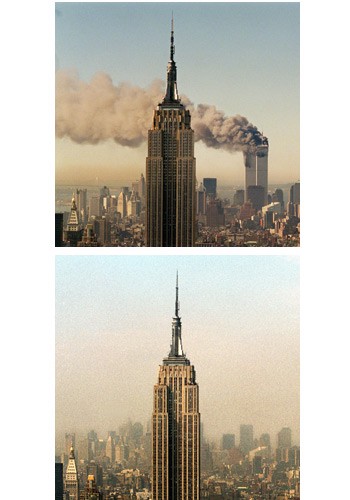 For the next four years, we acquiesced to the regular calls by our national leadership to be silent. Just following the leader was the patriotic thing to do when we reacted to the attacks of 9–11, when we went to war against Afghanistan, and when we went to war against Iraq. (It’s so unclear why we wen to war in Iraq. I can’t even figure out the right preposition in that sentence. Against Iraq? In Iraq? For Iraq?)
For the next four years, we acquiesced to the regular calls by our national leadership to be silent. Just following the leader was the patriotic thing to do when we reacted to the attacks of 9–11, when we went to war against Afghanistan, and when we went to war against Iraq. (It’s so unclear why we wen to war in Iraq. I can’t even figure out the right preposition in that sentence. Against Iraq? In Iraq? For Iraq?)The alarm bells were still ringing, but muted by fear into a constant low-decibel hum and molded by legalized transgressions into our lives by our government. On October 26, 2001, Congress passed the USA Patriot Act (The truly Orwellian name is Uniting and Strengthening America by Providing Appropriate Tools Required to Intercept and Obstruct Terrorism Act of 2001. It was renewed on May 26, 2011 and recently partially neutered and rebranded the USA Freedom Act.) The Patriot Act tied a tight bow around the now new normal in the US after 9–11.
It was official: being silent was the patriotic thing to do. There was no moment of meaningful consent — only quiet submission — to this new relationship with our government.
In 2004, I was living in Los Angeles kicking around cafes writing screenplays and plays. I looked for cafes with a good balance of people with their shiny laptops looking industrious and people who appeared to be former aspiring actors who no longer went to auditions, but couldn’t stop dreaming of being “discovered.” This latter group fascinated me. They seemed to live everyday hoping that some chance encounter would change their lives. Life was an ongoing audition because anyone could turn out to be that someone who could make them a star. Some of us with the shiny laptops appeared to be busy working on various “projects,” but I realize now that most of us were just daydreaming with dribbles of creative outlets found or made here and there. It was hard to face the fact that the chances of making it in Hollywood with a sustained career are slim. And, even if you find a place in the food chain, it’s unlikely to be creatively fulfilling.
At that time, as a nation, I believe we collectively went into a dazed dream. Many politically minded people like me did little other than fantasize that someday someone would save us because there was little that we can do as individuals. (I would realize in late 2007 with Barack Obama’s surge as a presidential candidate that many of us held our breath for years hoping for a savior to end the wars and restore a semblance of sanity into our national discourse. We would find out soon after the inauguration, another kind of collective insanity awaited us.)
Not all of us were quiet and compliant, of course. Many responded rightly and courageously with passionate protests against the wars. These efforts though became exercises in futility because the rest of us chose to sleep through it. On the whole, we were avoiding dealing with the reality of the horrors of war, and the unthinkable future if we turn out to be wrong about these decisions.
We used entertainment to escape our doubts about the legitimacy of the Bush administration, doubts about the morality of the wars, especially the Iraq War, and our growing suspicion that the war was not about terrorism and Al Qaeda, but about the bloated military industrial complex and Halliburton.
The mirror held up to our society — mainstream media — reflected back a distorted version of reality that included many openings for avoiding our conscience. It was possible to go days, months and years without thinking about the wars that were going on in far away places destroying communities and economies, killing and torturing people, in our name. I tried my best to avoid thinking about it because it only made me feel helpless and very few people in my life wanted to talk about it anyway. In most social circles that I was a part of, no one brought up the wars.
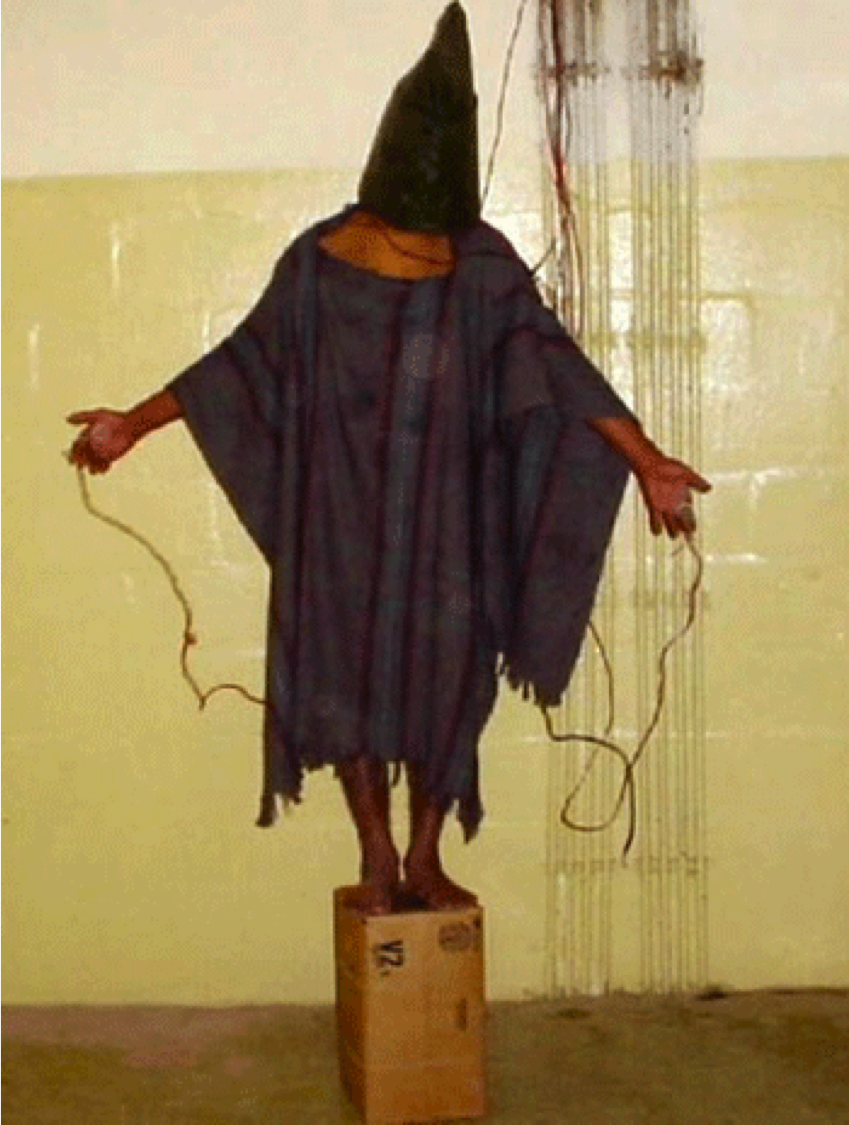 In 2004, with the unbearable photos from Abu Ghraib prison, I was jolted out of my civic slumber and cynical shell. The muted alarm bells were now screaming at the highest decibel: Wake up!
In 2004, with the unbearable photos from Abu Ghraib prison, I was jolted out of my civic slumber and cynical shell. The muted alarm bells were now screaming at the highest decibel: Wake up!
It was tempting to try to return to sleep, but it became impossible.
With those photos came an unbearable realization that the Iraq War was based on a terrible lie and we’d created a hell on earth. Instead of daydreams, I had nightmares for days that I was a prisoner in Abu Ghraib. I would wake up unable to breathe. I would spend hours asking myself and my friends over and over again, “How could this happen?” My moral and political conscience was finally awakened and I had trouble sleeping at nights.
This is the realization that came with the awakening: As citizens of a nation with the most powerful military in the history of mankind, we have a special duty to participate. The world is counting on us. Furthermore, being patriotic was not about silently saluting the national leadership. And it isn’t merely about voting. It is about taking the time to get informed, thinking about the issues that affect us all, and accepting the responsibility to speak up if our government is not aligned with our conscience. Passivity and silence have no place in American democracy. I was not acting in accordance with the oath and my pledge of allegiance.
This is at the heart of my own understanding of what it means to be a US citizen.
We the People of the United States, in Order to form a more perfect Union, establish Justice, insure domestic Tranquility, provide for the common defence, promote the general Welfare, and secure the Blessings of Liberty to ourselves and our Posterity, do ordain and establish this Constitution for the United States of America.
This government has legitimacy only because We the People make it so with our consent, participation and intent to be part of a more perfect union.
Democracy is not some service provided by our government that we passively consume. It is a vital relationship. A sacrosanct agreement between the government and each individual citizen. Every relationship is different, but too many of us have been passive in our relationship with our government. The foundation, the terms of our relationship with our government, has become confused over time.
I believe this message from Franklin D. Roosevelt is critical to clarifying the basic nature of our relationship.
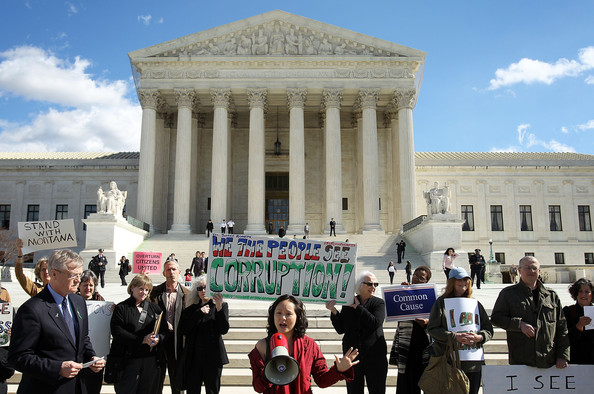 Let us never forget that government is ourselves and not an alien power over us. The ultimate rulers of our democracy are not a president and senators and congressmen and government officials, but the voters of this country.
Let us never forget that government is ourselves and not an alien power over us. The ultimate rulers of our democracy are not a president and senators and congressmen and government officials, but the voters of this country.
If owners leave their houses vacant for too long, the houses become vulnerable to squatters taking over. I’m afraid we have left the people’s house, the United States Congress, largely vacant — returning once every two-to-four years — for decades. I’m afraid we have left our minds vacant, consuming lots of escapist entertainment and “news” that didn’t truly inform us but fed our desire for easy opinions and our addiction to the rush of fear, hatred, sentiment.
As a result, in the people’s house right now, we have squatters that took advantage of the vacancy, our passivity. While we were sleeping, our representative democracy became an oligarchy.
I believe that my country needs me and all citizens to “perform work of national importance” as the oath requires. It’s a moral, political, and existential imperative that we awaken from our cynical slumber and commit to being self-governing citizens. We need a peaceful citizens revolt in order to reset the balance of power and regain control of our government.
What does a citizens revolt look like?
While we still have the vote and candidates running committed to reform, our strategy is clear: We must awaken our fellow citizens, empower them with information, communicate with each other with free tools, take legal action when it is applicable, organize ourselves as a community of people that can mobilize, and vote en masse. It would be truly revolutionary if the voter turnout is over 65% (the historic turnout in 2008 was 57.1%) and we vote overwhelmingly for reform. We can do this.
Our message is simple: Corruption must end. We demand real democracy now.
I believe we can unite our fellow citizens to save American democracy. I burn with deep and relentless yearning to see this happen.
I am awake and there is no turning back. I’m a born-again citizen.
Please support Story of America with a tax deductible donation.
